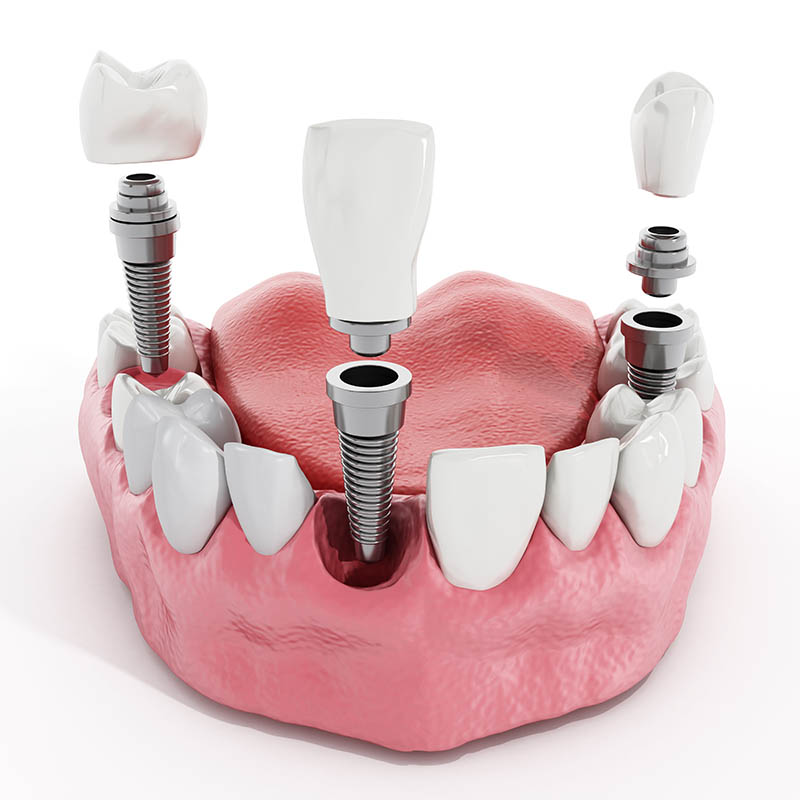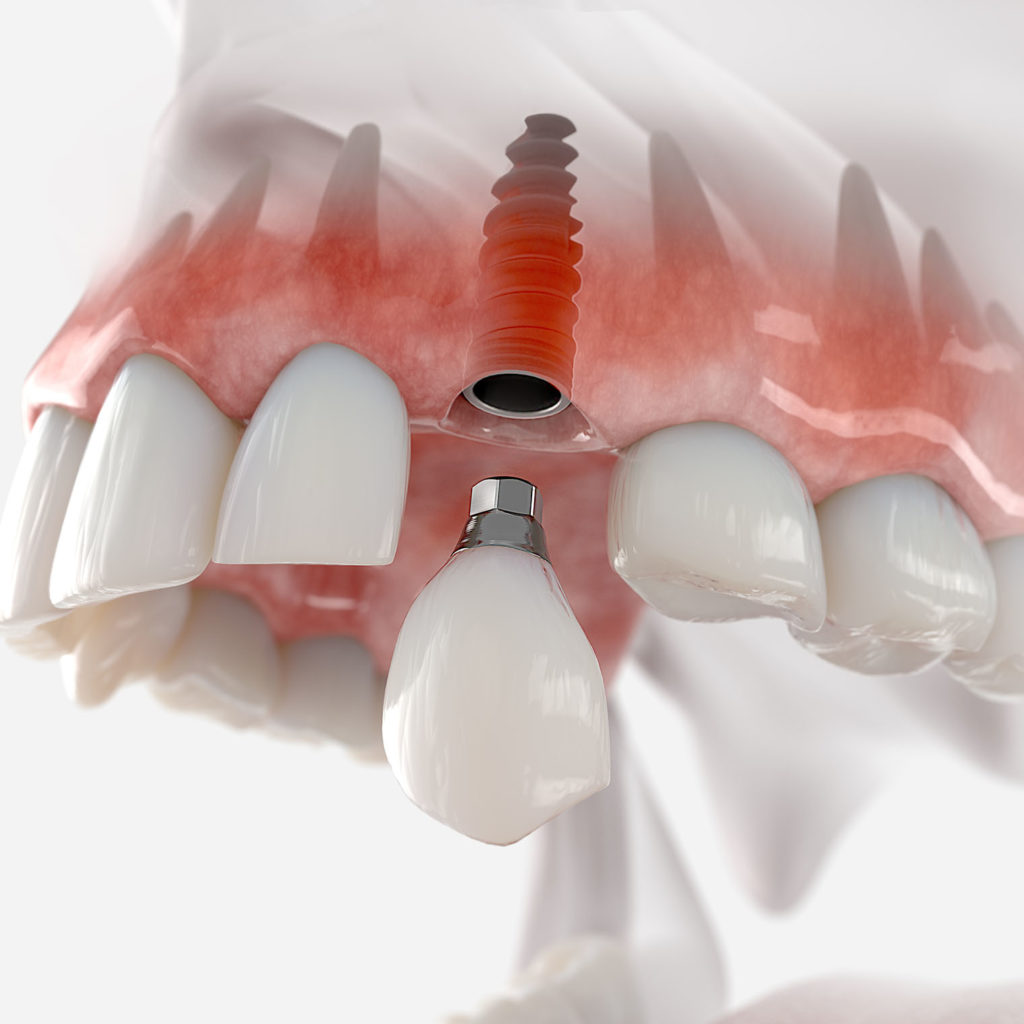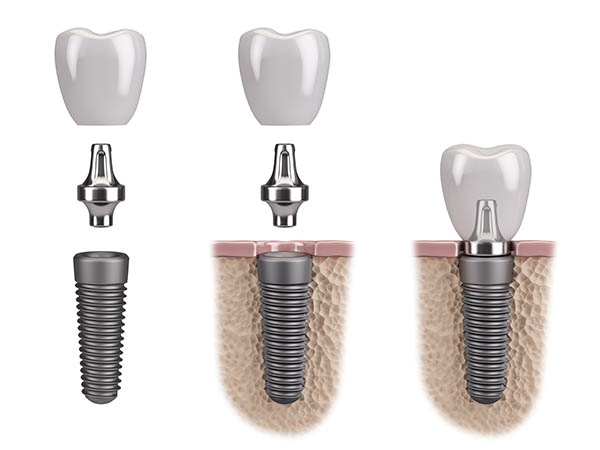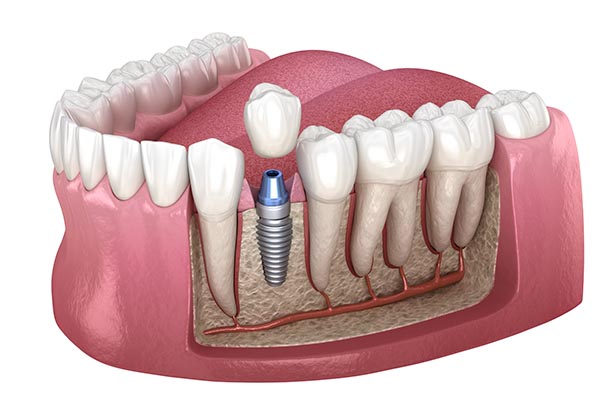First Things First...
What is a Dental Implant?
A Dental Implant is used to replace a missing tooth. Whether you’ve already lost one or more teeth or have just been told that a tooth needs to be removed, the impact can be devastating.
No one likes the idea that their smile will be incomplete, and we all rely on every one of our teeth for eating, speaking, and smiling with ease. In years past, the only solutions for tooth loss were bridges or dentures: artificial teeth that would anchor to either other teeth in your mouth, or to your gums. Neither of these solutions could actually replace teeth in a way that felt natural, and often they could lead to other problems – additional tooth loss, pain, and deterioration of the bones that define the very structure and character of your face.
Dental implants are medical devices surgically implanted into the jaw to restore a person’s ability to chew or their appearance. They provide support for artificial (fake) teeth, such as crowns, bridges, or dentures.
A dental implant is a small post, usually made of titanium, that serves as a substitute for the root of the tooth. A connector, known as an abutment, is placed on, or built into, the top of the dental implant, which connects it to the replacement tooth. Finally, a crown, a replacement tooth, is custom fabricated to match your natural teeth, completing the dental implant.


Dental Implants
Are you missing one or more teeth?
Would you like to find a permanent solution to replace your teeth? If so, you’ve come to the right place!
A Single Tooth Implant
Replacing Several Teeth
Replacing all your teeth:
Get the facts...
Are dental implants reliable?
Modern dentistry provides a better solution to the problem of tooth loss: dental implants. Whether you receive one, several, or an entire arch of implants, the result will be true replacements for your own teeth that let you eat, smile, and speak naturally as you would with natural teeth. When you get them from our dentists, no one will know that they aren’t your natural teeth, unless you tell them.

Titanium durability
Implants are made from the highest quality metal of titanium to ensure your implant lasts a lifetime and will not corrode and has a strength stronger than bone so it will last you forever.

Fused to the bone
A dental implant is a small, titanium post (screw) that is surgically placed within your jawbone beneath your gum line. This post will fuse with your jawbone, creating a stable foundation for your tooth restoration.

SUCCESS RATE
Dental implants can last for a lifetime. Dental implants have a 98% success rate. For this reason, dental implants are widely recognized as the #1 recommendation to replace missing teeth permanently.
Apply Today and ...
Have the smile you always wanted
Dental Implants
Am I a Good Candidate for Dental Implants?
At SHIMMER DENTAL we evaluate for dental implant surgery on the following:
Bone
When a tooth is missing, the surrounding bone begins to deteriorate. You need a certain amount of bone present so the titanium post can fuse with it. If you have been missing a tooth for a while, there may not be enough bone to perform dental implant surgery.
To determine this, we use specialized scanning equipment. This modern technology gives us a 3D view of your mouth and jawbone so we can evaluate your bone quantity. If you have enough bone, we will move forward with your personalized treatment plan.
If you don’t have enough bone for dental implants, then we can often perform a bone grafting procedure. This procedure can help your body regenerate bone and tissue so the implant can take hold. When you have sufficient bone, you will be able to move forward with the surgery.

